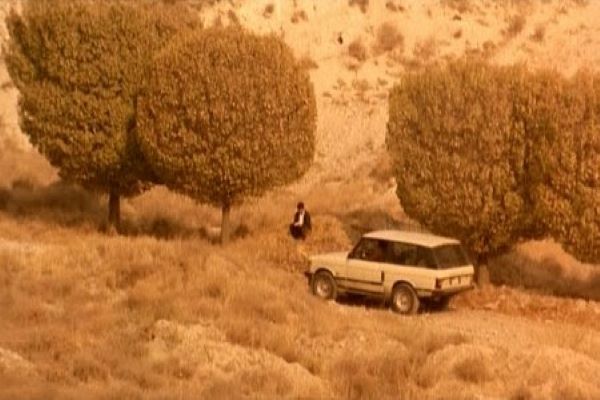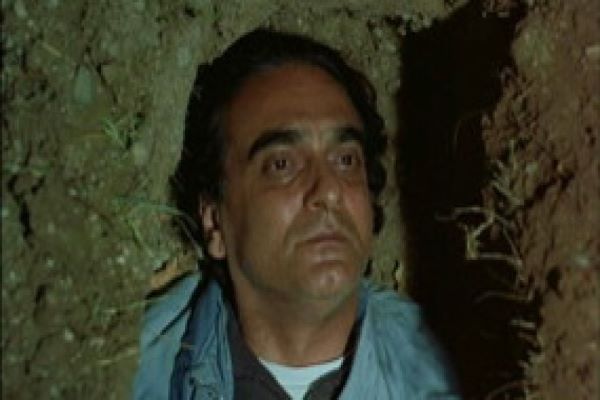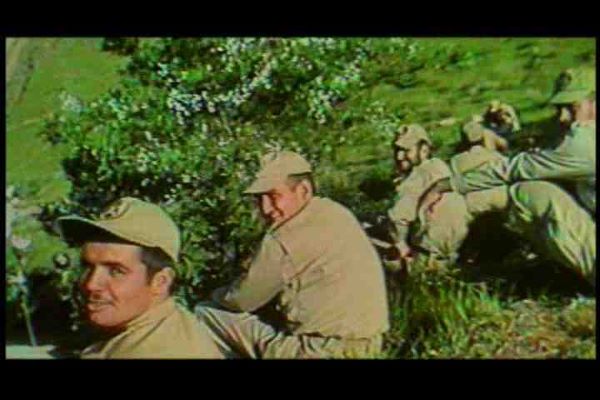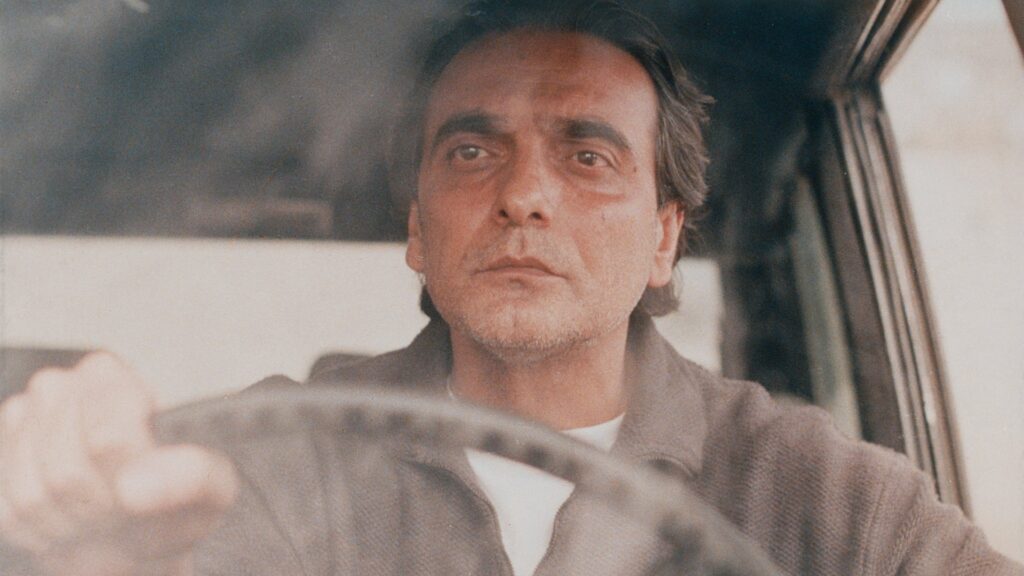World-famous Iranian film genius Abbas Kiarostami made multiple important films during his lifetime. Taste of Cherry is one of his most important and celebrated works. Kiarostami’s works deal with serious issues like life, death, afterlife, spirituality, separation, isolation, divorce, acceptance. He always made films based on what life had taught him. Humanity was his single most priority. Taste of Cherry is no exception. The pivotal point of the film is suicide. However, the film raises questions against it with respect to the value of life.
Taste of Cherry starts with the protagonist Mr. Badii (Homayoun Ershadi) in his car driving through the outskirts of Tehran. No information is available regarding his life and occupation. Viewers do not know what is his objective. He seems to be searching for a suitable candidate to accomplish some specific task. A group of Iranian laborers approach him for work but are not responded to. While driving through the outskirts of Tehran, he invites a worker to get into his car without mentioning the purpose. The worker gets irritated and warns him of attacking him. Badii stops the conversation right there and drives off.

The next person Badii meets is a Kurdish soldier (Safar Ali Moradi). He takes him into his car and reaches near the hole he has dug. While driving through the hilly areas, Badii details the job to the soldier. As per the job description, the soldier will come near the hole the next morning and calls him twice – Badii…Badii. If he replies, the soldier will hold his hand and help him to get out of the hole. If he does not, the soldier will throw twenty spadesful of soil in the hole. The payment for this job is 200,000 toman. Being puzzled and frightened, the soldier escapes down the hill opening the other door of the car.
Badii drives down the hill and stops beside a construction site. The air over there is full of dust. He meets an Afghan security guard who starts preparing tea for him. Badii offers him a car ride. However, when he declines to leave his post, Badii leaves the place without having tea to meet the seminarist friend of the security guard. While driving the car, Badii describes him the job description. The seminarist (Mir Hossein Noori) takes religious references from Quran against suicide and declines the job offer.
The next candidate Badii meets is a taxidermist named Bagheri. (Abdolrahman Bagheri) Just like the previous passengers, Badii describes the job description to him. Bagheri agrees to do the job as he needs the money for his ill son. He shares a real incident of him with Badii. He too wanted to commit suicide. However, the taste of a mulberry saved his life. Bagheri points out the beauties of the world like sunshine, natural beauties, etc. He states that the world is not bad, and Badii must change his negative mindset to be happy and successful. Suicide is never an option.

Badii returns to his house that night only to leave it a little later. He goes to the hole at the hill and lies down. A thunderstorm begins. The screen now fades to black. When the blackout is over, the film crew members including director Kiarostami are seen shooting an audio take. The actors are seen resting sitting at the lush green hilltop after the shooting gets over. Taste of Cherry ends with Louis Armstrong’s trumpet piece from the song “St. James Infirmary Blues”.
Kiarostami’s Taste of Cherry touches upon multiple aspects of life, most importantly life and death. Even though it apparently looks like a film about suicide, it is much more than that. It doesn’t ask people to commit suicide, rather it shows suicide as a way to exit life. The filmmaker points out that life is not forced on us. We should have the option to quit when life becomes a burden. It is not wise to carry deeply emotional baggage every day. Kiarostami humbly denies that only God should have the authority to end our lives always. He neither endorse nor promote suicide but only shows it as a door to exit the room that is no more favorable to survive. This path can be adopted only in extreme circumstances. The way to heaven is not hellish but heavenly. An unhappy person only spreads unhappiness that affects everybody surrounding him. It disturbs the basic purpose of living in this world. Kiarostami wants to disobey neither the holy Quran nor any other faith. Taste of Cherry does not show Whether Badii has committed suicide or not. It is not required also to portray the essence of the film.
The last scene of the film is enigmatic as well as significant. It shows that Kiarostami and his team are shooting an audio take, which seems to be a misfit in the film. However, all the films do not need to end in a concluding way. After portraying a depressing issue like suicide, the way Taste of Cherry ends refreshes the viewers. It adds a rhythm to the film. Even though the film largely focuses on suicide, the lush green natural beauty of the hilltop represents the heavenly transition to life. More than a pessimistic subject like suicide, Taste of Cherry is all about the preciousness of life.

Kiarostami followed a minimalistic approach for Taste of Cherry. The film was made with very limited resources and non-professional actors, and it was devoid of any filmy extravaganza. No detail is mentioned about Badii. Viewers do not know about his profession, family, and the reason behind contemplating committing suicide. Kiarostami highlights a serious issue like suicide through this film, but the film is more about the preciousness of life than suicide. More than negativities, the film showcases positivities surrounding life. The filmmaker is not a pessimist. Kiarostami uses a car to unfold conversations. The windshield of the car is used to project the reflections of the surroundings.
The visual distancing method is used throughout the film. The car is seen being driven on the hilly roads, the characters are not visible, but the conversations are heard. The filmmaker has a special affinity for the zigzag rural roads. The hilly landscape is mixed with bright colors. The lush green hilltop is seen in the last scene. Kiarostami’s films are also about ordinary humans, their feelings, and the natural beauties surrounding them. Homayun Payvar’s camera magnificently captured the rural beauties of Iran. Louis Armstrong’s trumpet piece in the last scene along with the green scenic beauty add much freshness to the film. Taste of Cherry won the prestigious Palme d’Or at the 1997 Cannes Film Festival. The film has received multiple accolades over time across the world.
